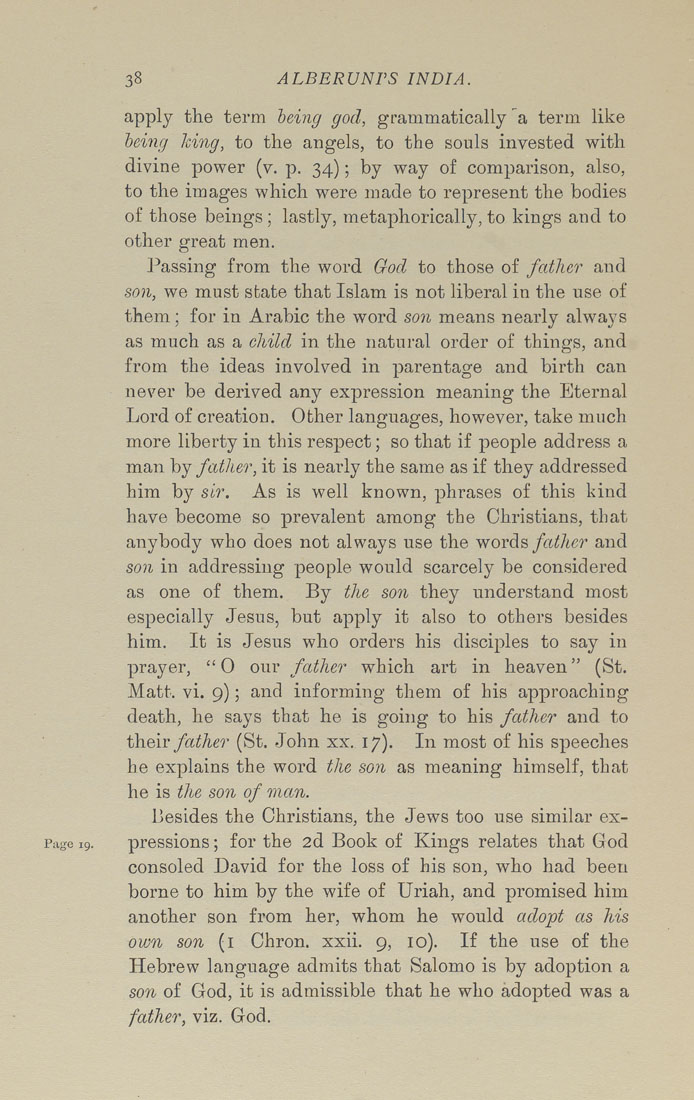Bīrūnī, Muḥammad ibn Aḥmad, Alberuni's India (v. 1)
(London : Kegan Paul, Trench, Trübner & Co., 1910.)
|
||
|
|
|
|
| Page 38 |

38 ALBERUNPS INDIA. apply the term being god, grammatically a term like hei7ig king, to the angels, to the souls invested with divine power (v. p. 34); by way of comparison, also, to the images which were made to represent the bodies of those beings; lastly, metaphorically, to kings and to other great men. Passing from the word God to those of father and son, we must state that Islam is not liberal in the use of them; for in Arabic the word son means nearly always as much as a child in the natural order of things, and from the ideas involved in parentage and birth can never be derived any expression meaning the Eternal Lord of creation. Other languages, however, take much more liberty in this respect; so that if people address a man by father, it is nearly the same as if they addressed him by sir. As is well known, phrases of this kind have become so prevalent among the Christians, that anybody who does not always use the words father and son in addressing people would scarcely be considered as one of them. By the son they understand most especially Jesus, but apply it also to others besides him. It is Jesus who orders his disciples to say in prayer, "0 our father which art in heaven" (St. Matt. vi. 9); and informing them of his approaching death, he says that he is going to his father and to their father (St. John xx. 17). In most of his speeches he explains the word the son as meaning himself, that he is the son of man. Besides the Christians, the Jews too use similar ex- Page 19. pressions; for the 2d Book of Kings relates that God consoled David for the loss of his son, who had been borne to him by the wife of Uriah, and promised him another son from her, whom he would adopt as his own son (i Chron. xxii. 9, 10). If the use of the Hebrew language admits that Salomo is by adoption a son of God, it is admissible that he who adopted was a father, viz. God. |
| Page 38 |







